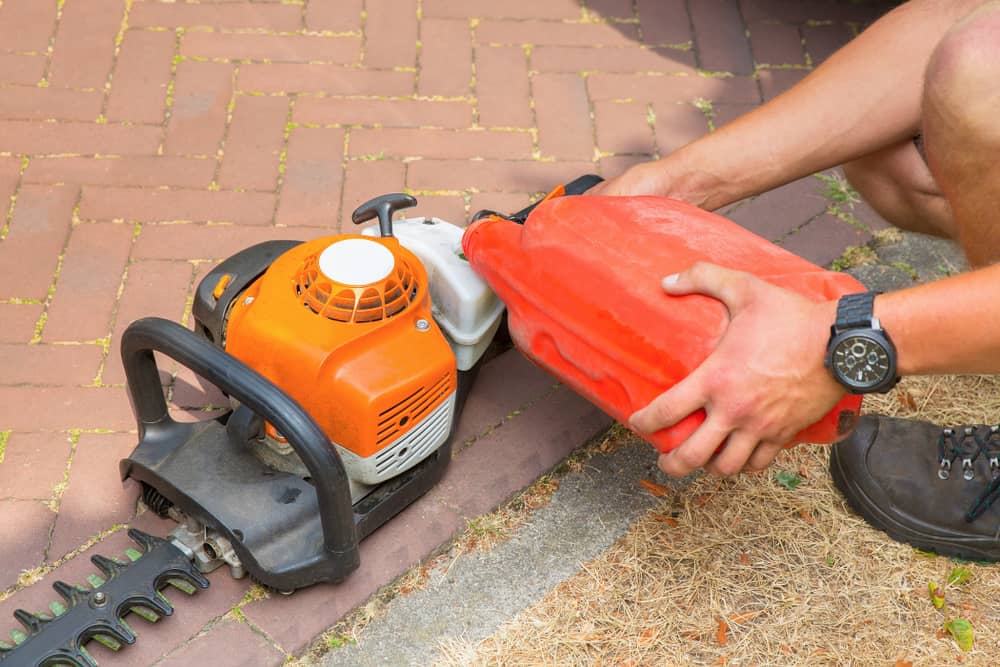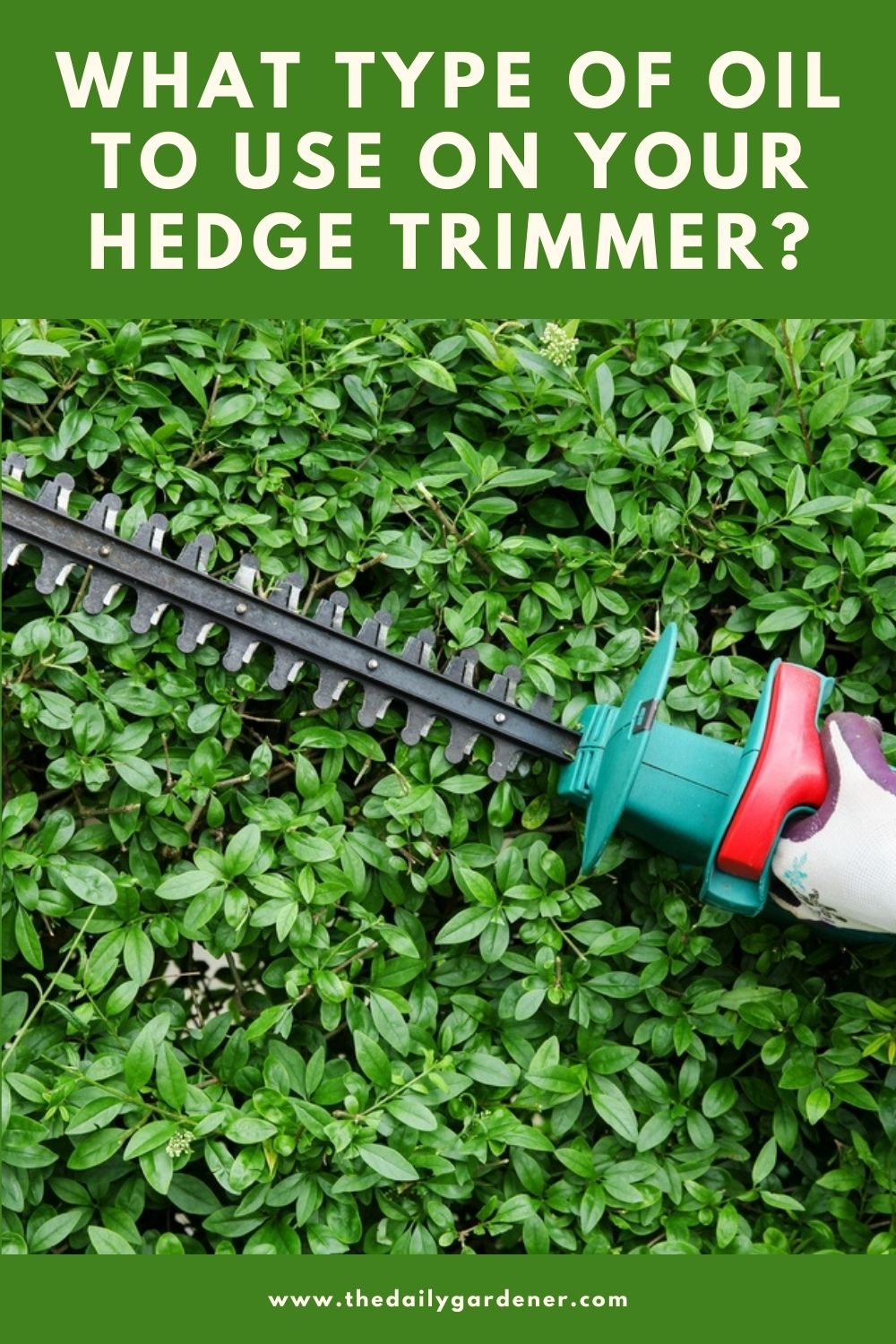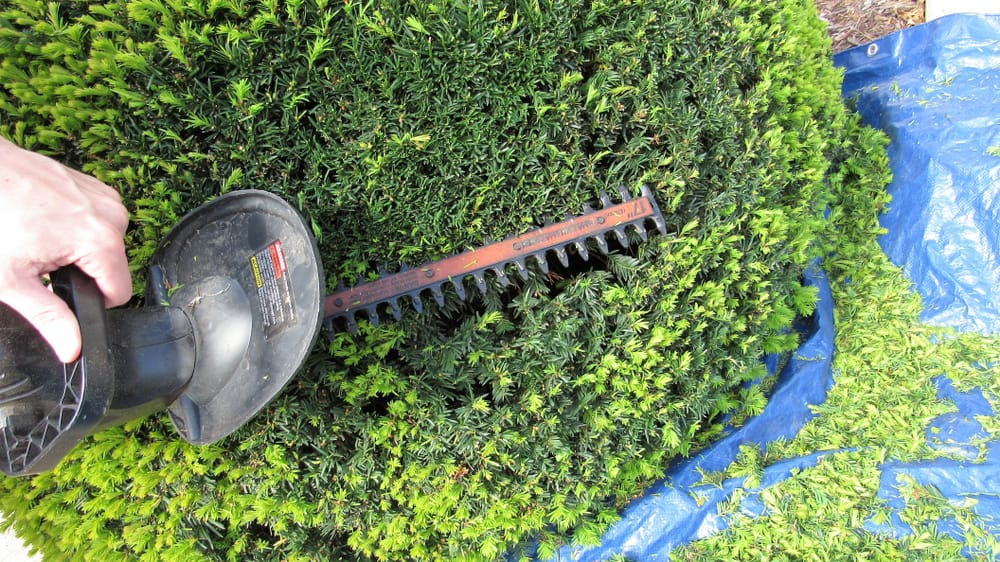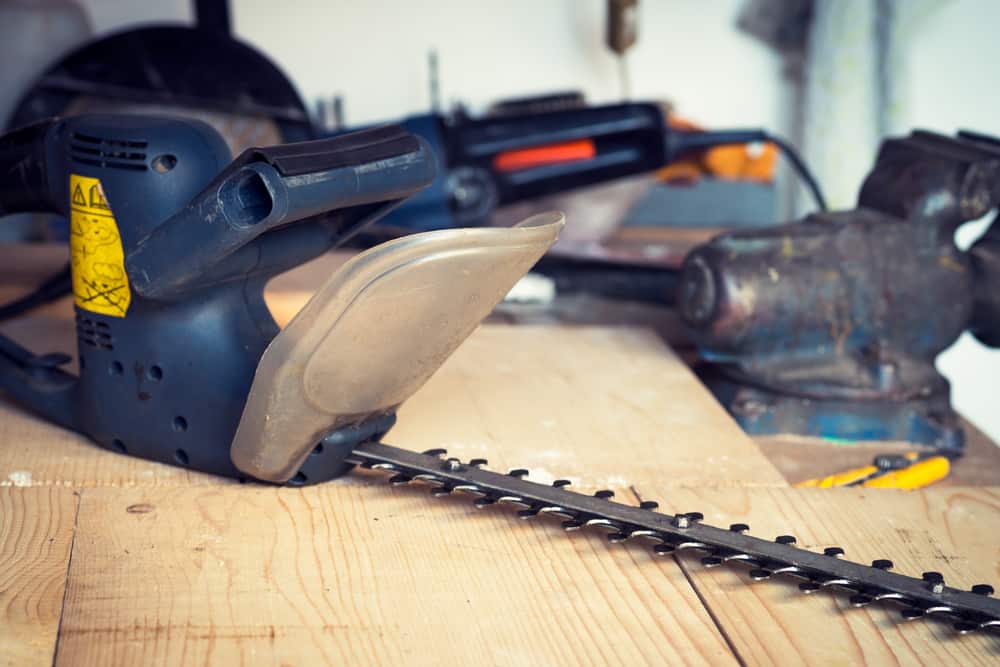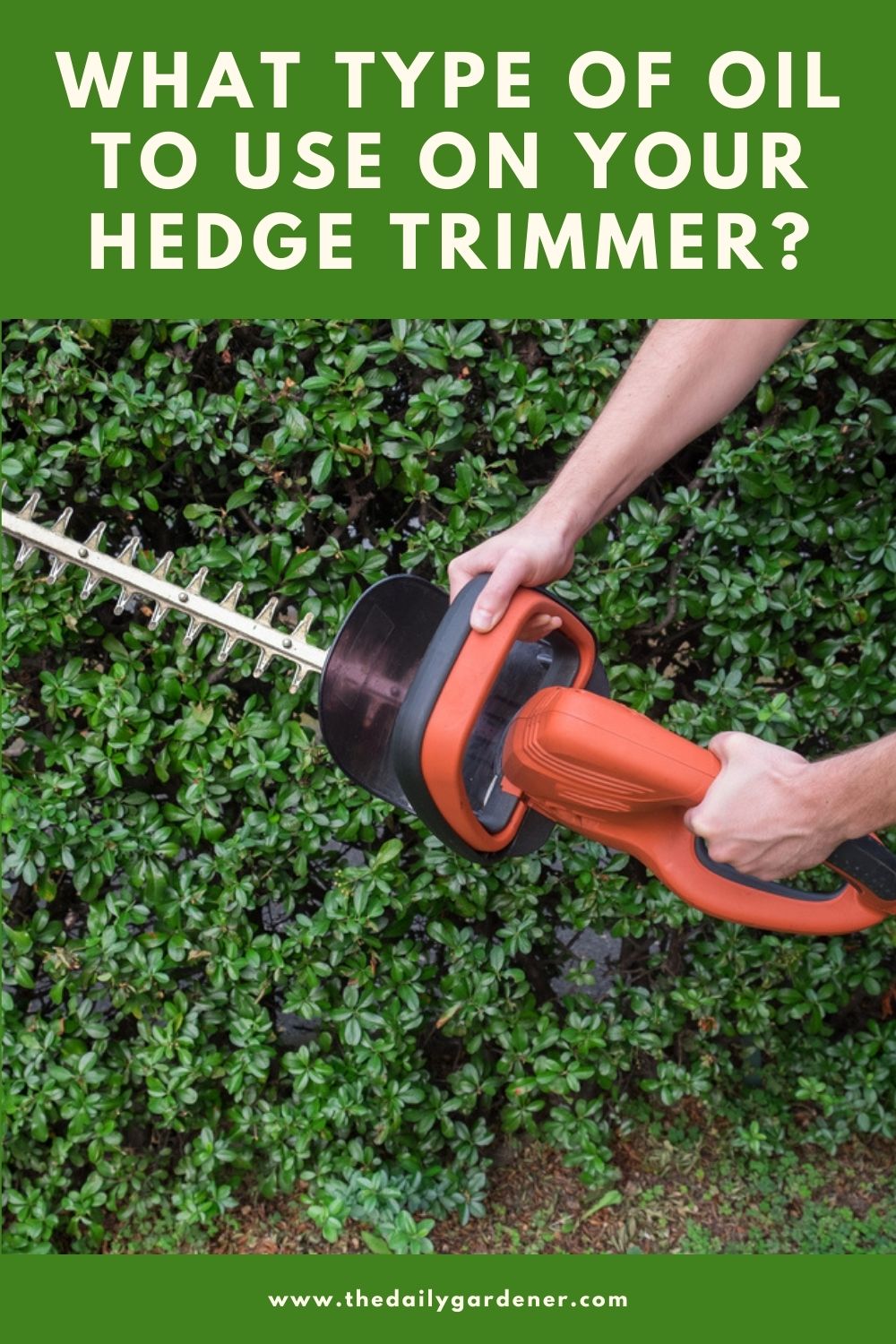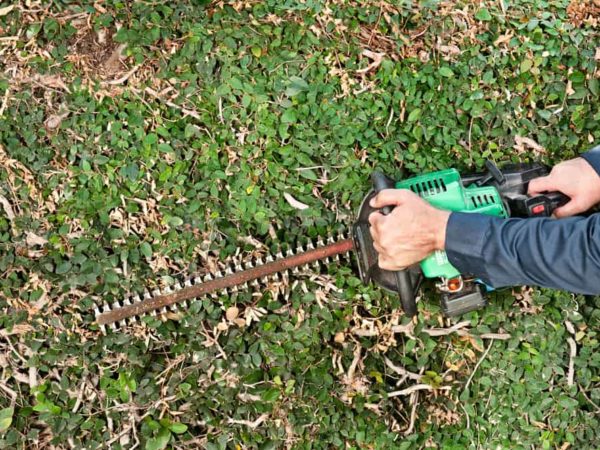Maintaining your hedge trimmer is a handful, but doing it right makes all the work worthwhile when the result shows over your hedges. Some basic maintenance steps are cleaning your hedge trimmer, (this should happen after each use) sharpening your hedge trimmer blade, (this can happen once or twice a month) and oiling your hedge trimmer. This applies to all types of trimmers including electric hedge trimmers, gas hedge trimmers, and even pole hedge trimmers.
Oiling your hedge trimmer is very important. Without doing this, your machine will be stiff and not work properly. The blade won’t rotate fast enough, and you may even get a preview of loud clanking noises from inside the trimmer.
Oiling or lubricating your trimmer will give you a much smoother, well-balanced, and quieter experience. Rusting, sticking, and stiffening can occur after repeatedly using your hedge trimmer. This results in slower performance, along with jagged, rugged cuts along your hedge plants.
Table of Contents
Choosing Your Oil
This isn’t as hard as it seems. A heavy-duty commercial oil will work just fine over your trimmer. Home oils aren’t ideal at all for this purpose. Try aiming for finding oil that is not too toxic, with certificates in purity, being environmentally friendly, and plant safe. Ignoring these points can damage your plants while you trim through them.
Most hedge trimmers come with an instruction manual from the company. In the case of many large-scale reliable companies such as Greenworks, BLACK+DECKER, Makita, DEWALT, and Radius Garden will either offer their own oil or recommend oils to use with your hedge trimmer.
The oil is not as important as how often you oil your trimmer and how thoroughly you lubricate it. The oil you choose can make a huge difference though. Stick to fresh oils and keep them cool in dark, dry storages.
When to Oil Your Hedge Trimmer
Oiling is something that you can never have enough of, unless oil starts coming out of your trimmer. Then you can assume you went a little too far.
When you know you’re going up against a rough, long hedge-trimming day, then you should oil your trimmer. Do it nicely and thoroughly so your job doesn’t falter against stiff joints and rusted metal.
When you oil your blade specifically, you also help prevent any sap, leaves, and debris from sticking to your trimmer while working. It’s great to oil your hedge trimmer as often as you can.
You don’t have to, however, do it every single time. Some people will only do it if they feel their trimmer is getting too stiff while others schedule their oiling once or twice a month or week. It all depends on how often you use your hedge trimmer, how long you don’t use your hedge trimmer, and the challenges your hedge trimmer faces when monitoring your hedges.
In this case, your judgment is the best. You can decide when your trimmer gets the special treatment and receives oiling.
How To Oil Your Hedge Trimmer
There are multiple ways you could go about oiling your hedge trimmer. The best point to always keep in mind is that you must be as gentle as possible. Creating nicks or scratches on the metal of your blade will make it liable to developing rust in these places. Not oiling it thoroughly however could mean you’ve left out vital points on your blade which will keep rusting and stiffening.
Electric, battery-powered, gas, and pole hedge trimmers all fit inside of the same genre when it comes to oiling.
If you have a powered trimmer, then the power source must always be turned off. Electric hedge trimmers have to be unplugged and in the off position before you start working over them. If you have a battery-powered hedge trimmer, make sure your battery is not in the machine. You don’t want any oil leaking into the battery to ruin it. Gas hedge trimmers should have no gas in the tank. When the machine turns on, oil and sparks is a very dangerous combination to encounter.
The easiest and most efficient way to oil your trimmer blade is with a cloth, manually. You can start by taking the blade out of your trimmer, or you can leave it inside. You want to watch the joints on the trimmer machine though. Getting too much oil inside of the system could loosen something inside of the trimmer.
You can dip the cloth inside of the oil, or pour a few drops on the corner of the cloth. Make sure the cloth is dry before you do use it, otherwise it won’t work properly. By slowly moving the oiled part of the cloth over the blade, fit your fingers into the nooks and corners that are likeliest to rust and stiffen. If you find any rust along the blade, gently rub over these spots with the cloth. If they don’t come off, then use soap or cleaner to remove them.
When it comes to the teeth of the blade, weave through each and every one of them thoroughly. This part of the blade should never get rusted if you want your trimmer to keep working for you.
The blade doesn’t have to be dripping with oil by the end of this process. But you should have gotten everything with a generous coating.
To get a better visual understanding of how to lubricate your hedge trimmer blade, you can view this video tutorial here.
Final thoughts
Taking care of your hedge trimmer isn’t hard at all. Once you create a functioning schedule to follow, the routine will become hard to crack. You can clean once in the week to make sure there’s nothing stuck inside of the hedge trimmer clogging up the system.
You can sharpen the blade once or twice a month to make sure you get sharp, clean cuts with each use of your blade.
And finally, you can oil your trimmer as often as convenient to keep the blade running smoothly, the machine running quietly, and the job is done quicker. The better you maintain your hedge trimmer, the longer it will serve you and your hedges.
Don’t forget to pin it!

